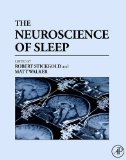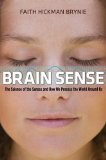December 8, 2009

Extreme Fear: The Science of Your Mind in Danger (MacSci) by Jeff Wise (Palgrave Macmillan, 2009)
(link for UK)
Fear is a mysterious force. It sabotages our ability to think clearly and can drive us to blind panic, yet it can also give us superhuman speed, strength, and powers of perception. Having baffled mankind for ages, fear is now yielding its secrets to scientific inquiry. The simple model of “fight or flight”–that people respond to danger either by fleeing in terror or staying to fight through it–has been replaced by a more complex understanding of the fear response.
Veteran science journalist Jeff Wise delves into the latest research to produce an astonishing portrait of the brain’s hidden fear pathways. Wise, who writes the “I’ll Try Anything” column for Popular Mechanics, favors a hands-on approach, volunteering to jump out of an airplane while wearing sensors and to endure a four-hour simulated missile attack on a Navy destroyer. He returns with a tale that combines lucid explanations of brain dynamics with gripping, true-life stories of mortal danger: we watch a woman defend herself against a mountain lion attack in a remote canyon; we witness a couple desperately fighting to beat back an encircling wildfire; we see a pilot struggle to maintain control of his plane as its wing begins to detach. By understanding how and why these people responded the way they did, Wise argues, we can better arm ourselves against our own everyday fears.
Full of amazing characters and cutting-edge science, Extreme Fear is an original and absorbing narrative that will force you to reconsider the limits of human potential.
See also: Author’s blog
Comments (0)
- cognitive science,new books
November 24, 2009

This week’s NOVA asks ‘What Are Dreams?’ The full program will be available online starting Nov 25 through the above website.
Also check out the recommended “Links & Books,” which has links to websites and articles, plus these book titles (which they didn’t link, so I’m providing the Amazon links):
Nightmares: The Science and Solution of Those Frightening Visions during Sleep (Brain, Behavior, and Evolution) by Patrick McNamara (Praeger, 2008)
Take a Nap! Change Your Life by Sara Mednick (Workman Publishing Co, 2006)
The Mind at Night: The New Science of How and Why We Dream by Andrea Rock (Basic Books, 2005)
Brain and the Inner World: An Introduction to the Neuroscience of the Subjective Experience by Mark Solm (Other Press, 2003)

I wasn’t familiar with Robert Stickgold who is the resident expert in their “Ask the Expert” section, but he has co-edited a recent volume on The Neuroscience of Sleep.
Seed Magazine has a video conversation between Stickgold and Michel Gondry, director of The Science of Sleep.
Comments (0)
- cognitive science,mind
November 8, 2009

Reading in the Brain: The Science and Evolution of a Human Invention by Stanislaus Dehaene is due out this Thurs (Nov 12) from Viking.
(link for UK)
Product description from the publisher:
A renowned cognitive neuroscientist’s fascinating and highly informative account of how the brain acquires reading
How can a few black marks on a white page evoke an entire universe of sounds and meanings? In this riveting investigation, Stanislas Dehaene provides an accessible account of the brain circuitry of reading and explores what he calls the “reading paradox”: Our cortex is the product of millions of years of evolution in a world without writing, so how did it adapt to recognize words? Reading in the Brain describes pioneering research on how we process language, revealing the hidden logic of spelling and the existence of powerful unconscious mechanisms for decoding words of any size, case, or font.
Dehaene’s research will fascinate not only readers interested in science and culture, but also educators concerned with debates on how we learn to read, and who wrestle with pathologies such as dyslexia. Like Steven Pinker, Dehaene argues that the mind is not a blank slate: Writing systems across all cultures rely on the same brain circuits, and reading is only possible insofar as it fits within the limits of a primate brain. Setting cutting-edge science in the context of cultural debate, Reading in the Brain is an unparalleled guide to a uniquely human ability.
The website for the book has chapter summaries and color figures.
Comments (0)
- cognitive science,new books,reading
October 25, 2009

The Lives of the Brain: Human Evolution and the Organ of Mind by John S. Allen (Harvard University Press, 2009)
(link for UK)
Product description from the publisher:
Though we have other distinguishing characteristics (walking on two legs, for instance, and relative hairlessness), the brain and the behavior it produces are what truly set us apart from the other apes and primates. And how this three-pound organ composed of water, fat, and protein turned a mammal species into the dominant animal on earth today is the story John S. Allen seeks to tell.
Adopting what he calls a “bottom-up” approach to the evolution of human behavior, Allen considers the brain as a biological organ; a collection of genes, cells, and tissues that grows, eats, and ages, and is subject to the direct effects of natural selection and the phylogenetic constraints of its ancestry. An exploration of the evolution of this critical organ based on recent work in paleoanthropology, brain anatomy and neuroimaging, molecular genetics, life history theory, and related fields, his book shows us the brain as a product of the contexts in which it evolved: phylogenetic, somatic, genetic, ecological, demographic, and ultimately, cultural-linguistic. Throughout, Allen focuses on the foundations of brain evolution rather than the evolution of behavior or cognition. This perspective demonstrates how, just as some aspects of our behavior emerge in unexpected ways from the development of certain cognitive capacities, a more nuanced understanding of behavioral evolution might develop from a clearer picture of brain evolution.
An excerpt is available through the publisher’s website.
See also: author’s blog at Psychology Today
Comments (2)
- cognitive science,human evolution,new books
October 11, 2009

Brain Sense: The Science of the Senses and How We Process the World Around Us by Faith Hickman Brynie (AMACOM, 2009)
(link for UK)
Product description from the publisher:
Have you ever wondered why you remember color images and scenes so much better than those in black and white? Or do you ponder why that first cup of morning coffee tastes better than anything you’ll have all day? The answer lies in the way our brains interpret and process the sights, smells, sounds, tastes, and touches that make up our lives. Brain Sense explores the latest research on brain function and the senses and offers fascinating new insights about what makes us tick. The book melds interviews with renowned scientists with stories of everyday experiences to illustrate how our brains process the world around us. Divided into parts, one for each sense, Brain Sense reveals:
• why what you eat and drink is not necessarily what you taste
• how we respond to pheromones
• how the body reacts to touch
• how music changes how the brain works
• the real truth about the sixth sense
• how the brain’s electrical responses affect hearing
Both enlightening and engaging, this book will help us more fully understand the elusive mysteries of the human brain.
See also: Author’s blog at Psychology Today
Comments (0)
- cognitive science,new books







